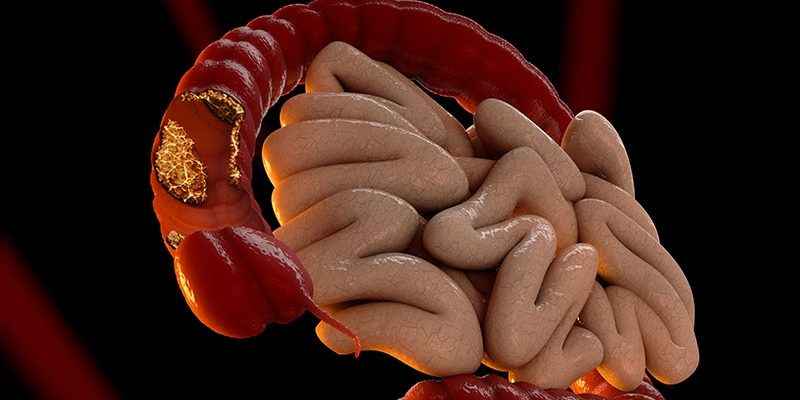The study covered in this summary was published on ssrn.com as a preprint and has not yet been peer reviewed.
Key Takeaway
Patients’ risk of colon cancer nearly quadrupled within a year of being treated for acute appendicitis.
Why This Matters
Past reports associating appendicitis with colon cancer have mostly been based on single-center series limited to people older than 40 years.
The new study captures virtually every case of appendicitis in young and middle-aged adults in France from 2010–2015.
Given the short interval between appendicitis and cancer diagnosis, the study suggests that appendicitis is an early warning sign of colon cancer, not a cause of it.
The findings support routine colon cancer screening for adult patients with appendicitis.
Study Design
Using the French Hospital Discharge Database, investigators matched 230,512 acute appendicitis cases in adults aged 18–59 years in a 1:2 ratio with 461,024 control persons hospitalized for trauma from 2010–2015. Case patients and control persons were matched on age, sex, and comorbidity index.
The team compared subsequent colon cancer rates between the two groups.
Participants with a personal or a family history of colon cancer and other strong risk factors were excluded.
Patients who were diagnosed with colon cancer within a month of having appendicitis were excluded to rule out cases that were diagnosed during appendectomy.
Key Results
Overall, 111 patients were diagnosed with colon cancer within 1 year of having appendicitis or undergoing appendectomy to treat appendicitis. There were 55 people in the control group (P < .0001).
After adjusting for confounders, the risk of colon cancer was almost fourfold higher among patients treated for appendicitis than among control persons during the first year of follow-up (adjusted hazard ratio [aHR], 3.93). It was almost sixfold higher in the first 6 months (aHR, 5.92).
Patients with appendicitis who were younger than 40 years had about a sixfold higher risk of having colon cancer within a year.
Appendicitis was associated with a higher risk of developing colon cancer within a year in obese patients (aHR, 19.67) and nonobese patients (aHR, 3.67).
The association was particularly strong in the first year for right-sided colon cancer (aHR, 8.21), which is on the same side as the appendix.
After 1 year, colon cancer rates were similar between the two arms.
Limitations
No information was available on what led to the discovery of colon cancer after appendicitis, and there was no information on tumor staging.
Lifestyle factors that increase the risk of colon cancer were also missing from the dataset.
Disclosures
The study was funded by the Regional Council of Burgundy.
The investigators did not disclose any relevant financial relationships.
This is a summary of a preprint research study, “Increased Risk of Colon Cancer after Acute Appendicitis: A Nationwide, Population-Based Study,” led by Manon Viennet of the University of Dijon, France, provided to you by Medscape. The study has not been peer reviewed. The full text can be found at ssrn.com.
M. Alexander Otto is a physician assistant with a master’s degree in medical science and a journalism degree from Newhouse. He is an award-winning medical journalist who has worked for several major news outlets before joining Medscape and also an MIT Knight Science Journalism fellow. Email: [email protected].
For more from Medscape Oncology, join us on Twitter and Facebook.
Source: Read Full Article
